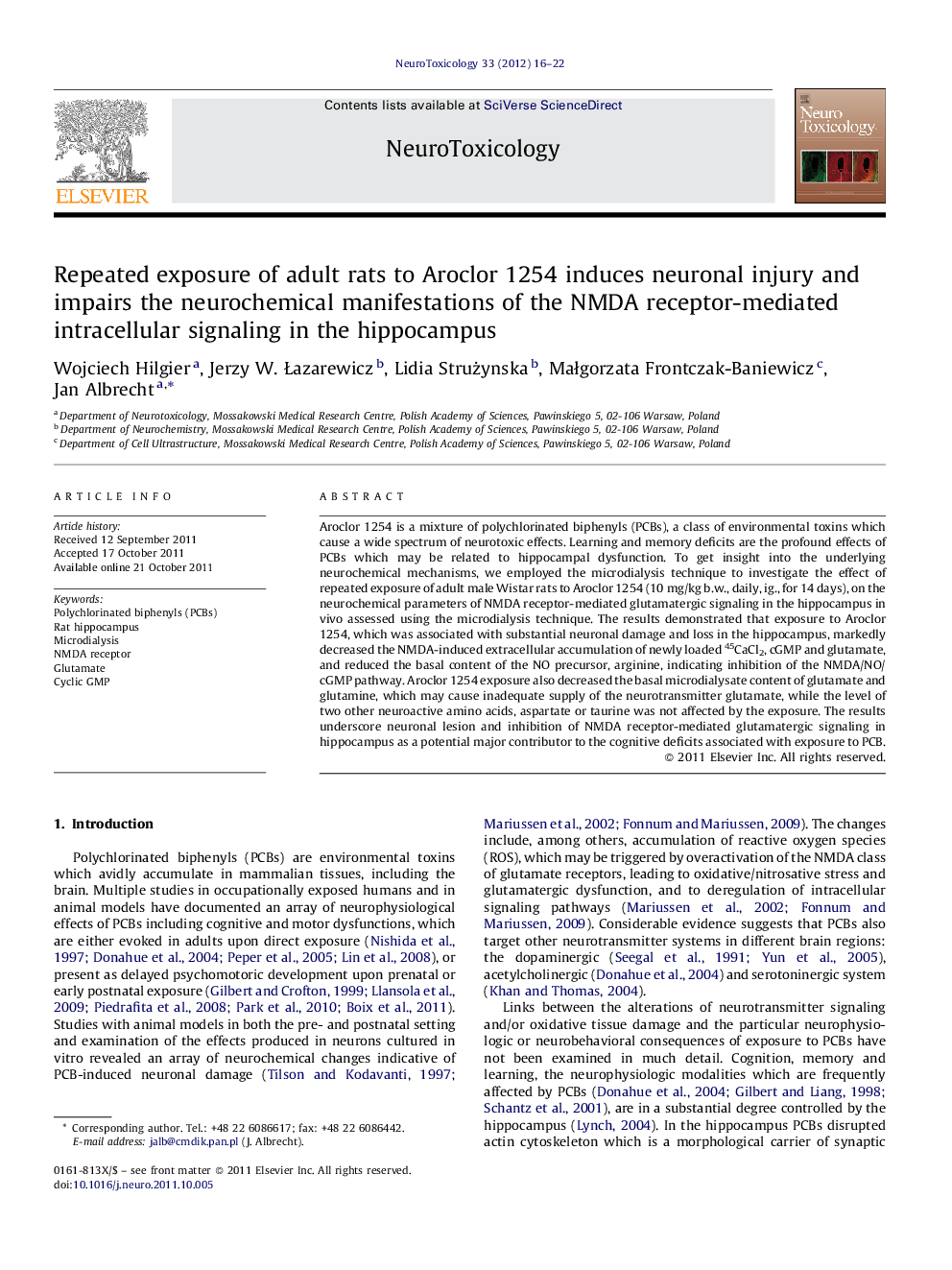| Article ID | Journal | Published Year | Pages | File Type |
|---|---|---|---|---|
| 2589779 | NeuroToxicology | 2012 | 7 Pages |
Aroclor 1254 is a mixture of polychlorinated biphenyls (PCBs), a class of environmental toxins which cause a wide spectrum of neurotoxic effects. Learning and memory deficits are the profound effects of PCBs which may be related to hippocampal dysfunction. To get insight into the underlying neurochemical mechanisms, we employed the microdialysis technique to investigate the effect of repeated exposure of adult male Wistar rats to Aroclor 1254 (10 mg/kg b.w., daily, ig., for 14 days), on the neurochemical parameters of NMDA receptor-mediated glutamatergic signaling in the hippocampus in vivo assessed using the microdialysis technique. The results demonstrated that exposure to Aroclor 1254, which was associated with substantial neuronal damage and loss in the hippocampus, markedly decreased the NMDA-induced extracellular accumulation of newly loaded 45CaCl2, cGMP and glutamate, and reduced the basal content of the NO precursor, arginine, indicating inhibition of the NMDA/NO/cGMP pathway. Aroclor 1254 exposure also decreased the basal microdialysate content of glutamate and glutamine, which may cause inadequate supply of the neurotransmitter glutamate, while the level of two other neuroactive amino acids, aspartate or taurine was not affected by the exposure. The results underscore neuronal lesion and inhibition of NMDA receptor-mediated glutamatergic signaling in hippocampus as a potential major contributor to the cognitive deficits associated with exposure to PCB.
► Substantial neuronal damage and loss of neurons. ► Decrease of the extracellular (microdialysate) content of glutamate and glutamine. ► Decrease of the NMDA-induced extracellular accumulation of calcium, cyclic GMP and glutamate. ► Reduction of the extracellular content of the nitric oxide precursor, arginine. ► The above events may contribute to cognitive deficit evoked by PCB exposure.
